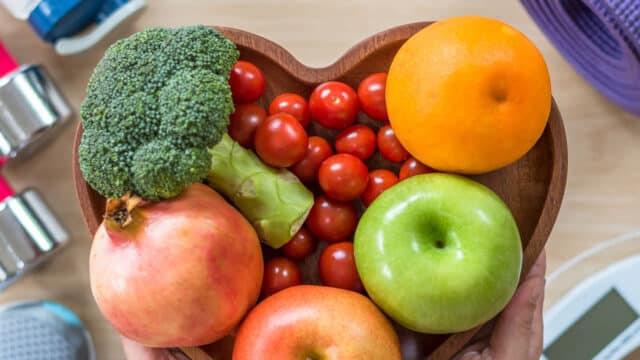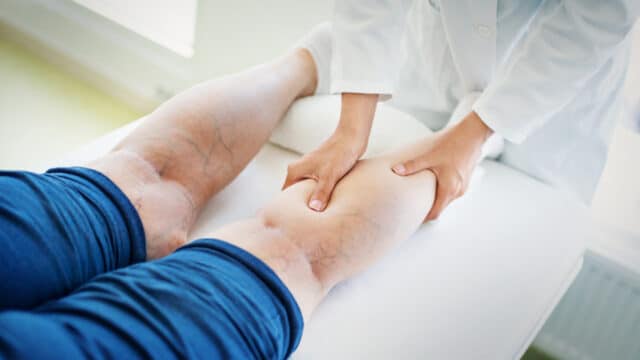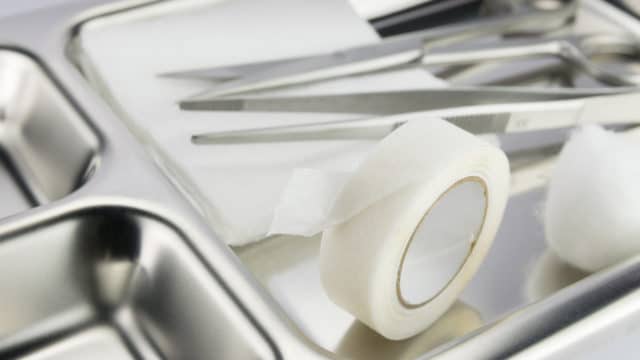The Role of Nutrition and Vitamins in Wound Healing
The body’s ability to heal wounds effectively involves proper nutrition – a fact particularly relevant for those recovering from prostate cancer treatments. During healing, your body requires increased amounts of specific nutrients to repair tissue, fight infection, and create new skin cells. While medications and proper wound care are essential, the food and nutrients you consume play a crucial but often overlooked role in recovery.
Think of wound healing as a construction project: your body needs the right building materials (proteins), energy sources (calories), and specialized workers (vitamins and minerals) to repair damaged tissue. Without adequate nutrition, even the best medical care and wound treatment may not achieve optimal results. Research has shown that proper nutrition can significantly impact healing times, reduce complication risks, and improve overall recovery outcomes.
This guide explores the essential vitamins and nutrients that support wound healing, how they work in your body, and practical ways to ensure you’re getting enough of them through diet and, when necessary, supplementation. Understanding these nutritional needs can help you take an active role in your recovery process.
Understanding the Wound Healing Process
Your body follows a remarkable sequence of healing stages after surgery or injury, each requiring specific nutritional support. This natural process unfolds in four distinct but overlapping phases:
Stage 1: Hemostasis (First Few Hours) During this initial stage, your body works to stop bleeding. Blood vessels constrict, and platelets form clots to seal the wound. Vitamin K plays a crucial role in this clotting process, while vitamin C helps strengthen blood vessel walls.
Stage 2: Inflammation (Days 1-5) Your immune system activates to protect and clean the wound. This stage brings typical signs like redness and swelling. Vitamins A and C support immune function, while zinc helps activate immune cells needed to clean the wound area.
Stage 3: Proliferation (Days 5-20) New tissue begins forming as collagen production increases. The wound starts filling in with healthy new cells. This stage heavily depends on vitamin C for collagen formation, while vitamin A helps create new blood vessels to supply the healing area.
Stage 4: Remodeling (Days 21 through Years) The final phase involves strengthening and reorganizing the new tissue. During this time, vitamin E helps reduce scarring, while continued vitamin C intake supports ongoing collagen maintenance.
Each of these stages requires proper nutrition to function optimally. Deficiencies in key vitamins can slow or impair the healing process, making your nutritional choices particularly important during recovery.
The Science Behind Tissue Repair
At the microscopic level, wound healing involves complex interactions between cells, proteins, and nutrients. Understanding these processes helps explain why proper nutrition is essential for recovery.
Cellular Activity and Repair: Your body mobilizes several types of cells during healing. Fibroblasts produce collagen, immune cells clean the wound, and new skin cells gradually close the wound’s surface. Vitamin C acts as a crucial cofactor in collagen production, literally helping to “weave” new tissue together. Meanwhile, vitamin A helps cells multiply and mature properly.
Immune Response: White blood cells rush to the wound site, requiring zinc and vitamin C to function effectively. These cells clear debris and fight potential infection. B vitamins support the energy production these active immune cells need, while vitamin D helps regulate the immune response to prevent overactivity.
Building New Tissue: Creating new tissue requires extensive protein synthesis and energy production. Your cells need:
- B vitamins to convert nutrients into energy
- Amino acids to build new tissue
- Vitamin C to create stable collagen fibers
- Zinc to support protein and DNA synthesis
This complex cellular dance requires a steady supply of nutrients, which explains why proper nutrition can significantly improve healing times and outcomes.
Good Nutrition is Essential to Wound Healing
Good nutrition, including an increase in the right type of calories, is the one common treatment requirement across all types of wounds. This is because the presence of a chronic wound raises the metabolic demands of our immune system. Proper nutrition and adequate intake of essential vitamins are crucial for supporting the body’s natural healing processes.
Additional calories from foods rich in protein and vitamins are needed to create blood cells to fight infection and to regenerate tissue cells for skin closure. The presence of a chronic wound can increase calorie requirements by 50% and protein requirements by up to 250% to maintain current lean body mass (LBM).1
Advanced Age Can Lead to a Loss of Appetite
Loss of lean body mass due to insufficient calorie intake is a significant issue for people of advanced age, especially those living with a chronic wound. This is true across socio-economic backgrounds, as the leading cause of decreased food intake is the loss of appetite. Factors that can contribute to a loss of interest in eating include:
- certain medications
- lessened senses, loss of taste or smell
- lack of mobility
- depression or loneliness
- limited access to healthy meals
Addressing these factors and finding ways to encourage adequate nutrition is crucial for supporting wound healing in older adults. One way to ensure you, or someone you care for, is consuming enough calories is to plan five or six small meals instead of aiming for three large meals. Another method is to include calorie-enriched beverages as snacks, such as smoothies or milkshakes with added protein.
Essential Vitamins for Optimal Wound Recovery
Protein is essential for cell health and development, so it plays a key role in all stages of wound healing. New white blood cells are needed to fight infections, and new skin cells must replace damaged tissue. Zinc, Vitamin A and Vitamin C aid in the creation of collagen for tissue repair and skin cell regeneration. Ensuring adequate intake of these key nutrients through a balanced diet or supplementation under the guidance of a healthcare professional can help support the wound healing process.
Each day, you should aim to consume two to three servings of protein and at least two servings of foods high in Vitamin A, Vitamin C and Zinc. Incorporating a variety of nutrient-dense foods into your diet can help provide the essential building blocks for wound healing.
Supporting Vitamins and Minerals for Enhanced Healing
While protein and vitamin C are essential foundations for healing, certain foods contain powerful combinations of nutrients that can accelerate recovery. By incorporating specific foods into your diet, you can naturally support your body’s healing process.
Food Sources of Vitamin D: Beyond supplements, foods like fatty fish, egg yolks, and fortified dairy products provide vitamin D that helps control inflammation and supports healing. For those who don’t eat fish, mushrooms exposed to UV light can be an excellent alternative source.
Vitamin K-Rich Foods: Dark leafy greens like kale, spinach, and collard greens provide vitamin K for proper blood clotting. Fermented foods like natto and sauerkraut offer particularly high amounts of this essential nutrient.
Mineral-Rich Food Choices:
- Red meat and lentils for iron
- Nuts and seeds for copper and zinc
- Pumpkin seeds and almonds for magnesium
- Brazil nuts and fish for selenium
These nutrients work in partnership – for example, vitamin D needs magnesium to be properly activated, while vitamin K works with vitamin D to regulate calcium use in tissue repair. This interconnected system explains why a balanced, nutrient-rich diet supports healing better than single-nutrient supplementation.
Foods that Help Wounds Heal Faster
While vitamins A and C often take center stage in wound healing, a team of supporting nutrients plays equally vital roles in recovery. These nutrients work together, each contributing to different aspects of the healing process.
Vitamin D: Beyond its known role in bone health, vitamin D helps control inflammation and supports new blood vessel formation in healing tissue. It also activates important immune cells that help protect healing wounds from infection.
Vitamin K: Essential for the initial healing response, vitamin K enables proper blood clotting at the wound site. It also helps regulate calcium in tissue repair, working alongside vitamin D to support the healing process.
Supporting Minerals:
- Iron helps deliver oxygen to healing tissues
- Copper assists in collagen cross-linking
- Magnesium supports immune function
- Selenium helps protect healing cells from damage
These nutrients work in partnership – for example, vitamin D needs magnesium to be properly activated, while vitamin K works with vitamin D to regulate calcium use in tissue repair. This interconnected system explains why a balanced, nutrient-rich diet supports healing better than single-nutrient supplementation.
Supplementation Suggestions and Considerations
Nutritional supplements can support wound healing, but they require careful consideration and professional guidance. Not everyone needs supplements, and more isn’t always better.
Important Notice: Never start a supplement regimen during wound healing without your healthcare provider’s approval. They can evaluate your specific needs and ensure safe, effective supplementation that supports your recovery.
Making Smart Choices About Supplements
Starting supplements requires careful planning with your healthcare team. During your consultation, bring a list of your current medications and discuss any health conditions that might affect your supplement choices. Your doctor may want to check your current nutrient levels through blood tests before recommending specific supplements.
Many patients find they can meet their nutritional needs through diet alone. However, if supplements are needed, timing matters. Some vitamins are best absorbed with food, while others work better on an empty stomach. Your healthcare provider can create a personalized plan that considers your medications, diet, and overall health status.
Safety is paramount when using supplements. Choose products from established manufacturers and always inform your healthcare team about any supplements you’re taking. This is especially important if you’re having surgery or undergoing other treatments, as some supplements can affect medication effectiveness or healing times.
Safe Supplementation Practices:
- Start with recommended doses
- Take supplements at optimal times (some with food, others on an empty stomach)
- Choose quality products from reputable manufacturers
- Monitor for any side effects
- Keep your healthcare team informed of all supplements
Important Considerations:
- Some supplements can interact with medications
- Certain nutrients compete for absorption
- High doses of some vitamins may slow healing
- Individual needs vary based on overall health
- Surgery may change your nutrient requirements
Maximizing Your Body’s Healing Potential: Next Steps and Implementation
Taking an active role in your healing process can significantly impact recovery. Here’s how to put this nutritional knowledge into action:
Getting Started: Understanding Your Current Health Picture
Start by taking stock of your daily eating habits – what does a typical day look like for you? Jot down your usual meals and snacks, including portion sizes. This food diary will help identify areas where you might need nutritional support.
Next, make a complete list of your medications and any supplements you’re already taking. This information is crucial for your healthcare team to spot potential interactions or gaps in your nutritional needs.
Keep a simple healing journal. Write down how your wound looks and feels each day, along with your energy levels. Note any challenges you encounter, like increased pain or changes in appetite. These observations help track your progress and alert you to potential concerns that need medical attention.
This information creates a clear picture of your current health status, helping you and your healthcare team make informed decisions about your nutritional needs during recovery.
Create Your Healing Plan:
- Schedule a nutrition consultation with your healthcare team
- Identify gaps in your current nutrition
- Plan balanced meals that support healing
- Consider necessary dietary modifications
- Establish a regular eating schedule
Monitor Your Progress:
- Keep a simple food diary
- Document any changes in wound healing
- Note improvements or concerns
- Track your energy and strength
- Record any side effects
Take Action Today:
- Make an appointment with your healthcare provider to discuss nutrition
- Start incorporating more nutrient-rich foods into your meals
- Begin tracking your wound healing progress
- Prepare a list of questions about your specific nutritional needs
This information is a general guide for understanding nutrition’s role in wound healing. Work with your healthcare team to develop a personalized plan that addresses your specific needs and medical situation. We understand that any wound-healing journey can feel overwhelming. Remember that healing is a process, and every person’s journey is unique. With proper nutrition, careful wound care, and attention to your body’s needs, you can support your recovery effectively.
Your healthcare team is your best resource for personalized guidance. Don’t hesitate to reach out with questions or concerns about your wound care, nutrition needs, or healing progress. You’re not alone in this journey – support and expertise are always available to help you achieve the best possible healing outcomes.



